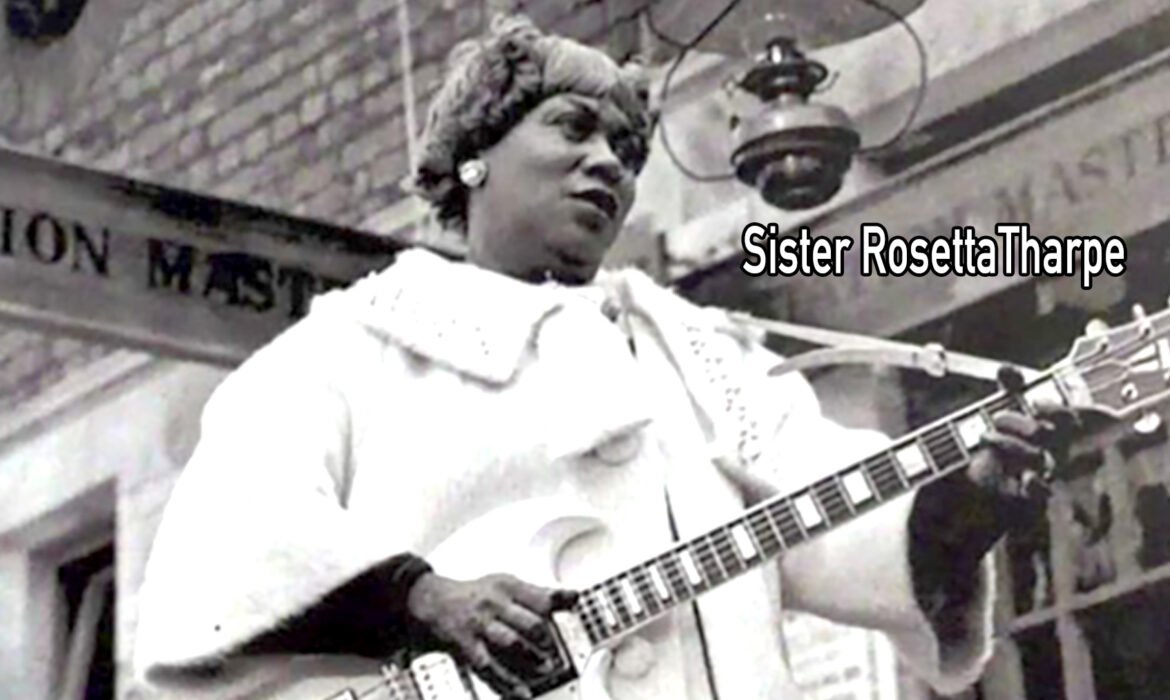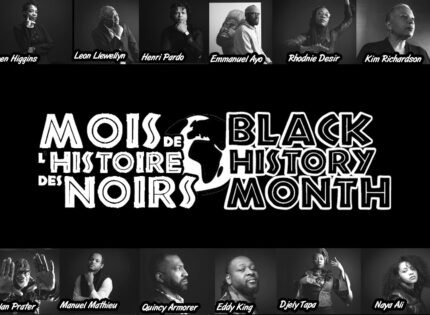 My father used to have an expression: “If it don’t rock me, it don’t roll me.” He was referring to the audacity of white so-called rock bands calling their music “rock and roll.”
My father used to have an expression: “If it don’t rock me, it don’t roll me.” He was referring to the audacity of white so-called rock bands calling their music “rock and roll.”
This much-heated debate has been had among fans, music critics and musicians alike for over half a century.
Throughout music history since the 1950’s, popular music in North America performed by Black people was labeled, “rhythm ‘n’ blues” or “R&B” and the popular music that was performed by white people was dubbed “rock and roll” or “rock.”
When in fact rock or rock ‘n roll was just an offshoot of R&B and blues anyway.
What is considered the first rock and roll record anyway is 1951’s “Rocket 88” by Ike Turner And His Kings Of Rhythm, an all Black band led by Turner who 15 years later would hit it big with his future wife Tina!
Sister Rosetta Tharpe, who had a major impact on future rock and roll legend Little Richard, was one of the earliest pioneers of rock and roll.
Tharpe, a Black woman who played electric guitar, sang gospel lyrics over a “rockin’” beat with fervor and intensity that would later influence future white rock stars like, Elvis Presley and Jerry Lee Lewis.
The term rock and roll had deeply rooted in old African-American vernacular dating back possibly over a century ago.
The term was meant to describe two things in what some folks today call “ebonics”. One was to describe the religious fervor of the Black church, possibly the Pentecostals, when one catches the holy ghost and beings to rock back and forth. The other was used to describe “sex”.
Some of the earliest examples were a 1922 recording by Black female blues singer and vaudeville performer Trixie Smith called “My Man Rocks Me With One Steady Roll.”
In 1929, Lil Johnson recorded a song called “Rock That Thing” which also contained risqué lyrics. That same year Ikey Robinson released a record called “Rock Me Man.”
There was also B.B. King’s 1964 hit “Rock Me Baby” which was heavily based on Lil’ Son Jackson’s 1951 track “Rockin’ And Rollin’” with the lyrics “rock me baby, rock me all night long, rock me baby, like my back ain’t got no bone”.
That standard has been covered by various artists including; Jimi Hendrix, Eric Clapton, Jeff Beck and Otis Redding.
So the fact that The Rock And Roll Hall Of Fame is headquartered in Cleveland, Ohio is a dichotomy.
Cleveland was chosen as the birthplace of rock and roll because Alan Freed, a white disc-jockey on Cleveland’s AM station WJW, played rhythm ‘n blues records almost exclusively. He was credited with coining the term “rock ‘n’ roll” although the expression existed for decades prior in America’s Black community.
Freed most likely lifted it from one of the records he played, Billy Ward And The Dominoes from 1951 called “Sixty Minute Man,” whose lyrics went: “I rock ‘em, I roll ‘em, all night long.”
Alan Freed, who was never a musician would take credits for songs that he never wrote such as Chuck Berry’s very first single, “Maybellene” in 1955. Freed did this in exchange for playing these sort of records on his radio show which was now extremely popular and important after he began broadcasting on WINS in New York City.
Eventually Freed was charged by the federal government in breach of the payola act of the Federal Communications Commission of the United States and was fined and given a suspended sentence.
Berry would only regain full ownership of “Maybellene” many years later.
The very first pioneers of rock and roll in the 1950’s were all Black: Chuck Berry, Little Richard, Fats Domino, Bo Diddley, Lloyd Price, Big Joe Turner and countless others.
But Sam Phillips, a white record producer and studio owner from Memphis who ran The Memphis Recording Service which eventually morphed into Sun Studios and Sun Records.
Phillips had recorded early blues, R&B, and rock and roll records by early Black pioneers like: B.B. King, Howlin’ Wolf, Rufus Thomas, Little Milton and Bobby “Blue” Bland.
He often was quoted at the time as saying: “If I could find a white man that could sing like a Black man, I’d make a million dollars.”
Then one August day in 1953, a 19-year-old truck driver born in Tupelo, Mississippi walked into Phillips, studio to make a record as a birthday gift for his mother.
He paid to record two songs, one of which was a 1941 hit for Black doo-wop legends, ‘The Ink-Spots’ called, “That’s When Your Heartache Begins,” the other song was a classic ballad, “My Happiness” a hit for Black jazz legend Ella Fitzgerald in 1948.
The rest they say, is history.
Elvis’ was signed to Phillips’ Sun Records and the very first recording he released was a cover of “That’s Alright, Mama,” written and originally recorded by Black singer-songwriter Arthur “Big Boy” Crudup.
Most of Presley’s earliest big hits were songs originally done by Black artists such as Big Mama Thornton who recorded the original “Hound Dog” in 1953, three years prior to Presley’s 1956 version.
Presley’s 1956 smash “Don’t Be Cruel” was written by Black singer-songwriter Otis Blackwell, who received no royalties for the track but merely a one-time $25 fee.
When Presley’s contract was sold to RCA in 1956, his self-titled debut album for the label featured no original material but contained cover songs by Black artists including, Ray Charles, Clyde McPhatter and Little Richard.
The Beatles, who would later become rock legends in the 1960’s , also recorded cover songs by Black artists on their 1963 debut album “Please Please Me.” The Fab Four did their rendition of songs by, The Isley Brothers (“Twist And Shout”), Arthur Alexander(“Anna”), The Cookies(“Chains”) and The Shirelles (“Boys” and “Baby It’s You.”)
On their sophomore set “With The Beatles,” they pretty much echoed the same endeavor, covering, Chuck Berry (“Roll Over Beethoven”), Smokey Robinson And The Miracles (“You Really Got A Hold On Me”), Barrett Strong (“Money”-That’s What I Want”), The Donays (“Devil In Her Heart”) and The Marvelettes(“Please Mr. Postman.”)
The Rolling Stones, dubbed “The Greatest Rock And Roll Band In The World” featured only one original song on their Self-Titled 1964 debut set. The rest of the album featured covers of blues and rock and roll classics by legends like, Jimmy Reed, Bo Diddley, Rufus Thomas, Muddy Waters, Earl Hooker, Nat “King” Cole, Gene Allison, Slim Harpo and Marvin Gaye.
Pink Floyd, who would take progressive rock and psychadelia to a whole other dimension from the 60’s onwards, actually named their group after two Black American bluesmen, Pink Anderson and Floyd Council.
While white rock groups like Led Zeppelin, The Who, Black Sabbath, Iron Maiden, Cream and countless others would achieve fame and fortune doing their brand of rock, they rarely moved beyond the musical framework of Muddy Waters and the guitar licks of Chuck Berry. Sometimes even resulting in law-suits of copyright infringement.
Led Zeppelin were sued several times for stealing music by Black artists and crediting themselves as the composers including an out-of-court settlement with song-writer Willie Dixon, who wrote the 1962 song “You Need Love” for Muddy Waters, which was plagiarised for Zeppelin’s 1969 classic “Whole Lotta Love”.
The Beatles settled out of court with Chuck Berry in 1973 over their 1969 hit “Come Together” which plagiarised Berry’s 1956 hit “You Can’t Catch Me.”
These are just a few examples of how white rock artists had to steal from Black musicians just to be able to keep up with the joneses in some of the earliest efforts of cultural appropriation.
The reason so much of this history being unknown is because of what some feel is a failure on the part of Black people to preserve a legacy that one could argue has been the biggest cultural phenomenon in modern history.
One could also argue that white parents have taught their children about, Elvis, The Beatles, The Stones, Rod Stewart, Eric Clapton and so on.
Have Black parents taught their kids about; Chuck Berry, Little Richard, Bo Diddley, Sam Cooke, Jimi Hendrix, Prince, Living Colour, B.B. King and Muddy Waters???
Rock n Roll Is Black Music













1 Comment
Michael Anthony December 15, 2021 at 6:06 pm
But could Chuck play Dave Murray or Adrian Smith”s licks ?